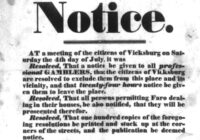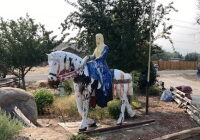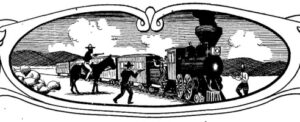|
Listen to this blog post here
Getting your Trinity Audio player ready...
|
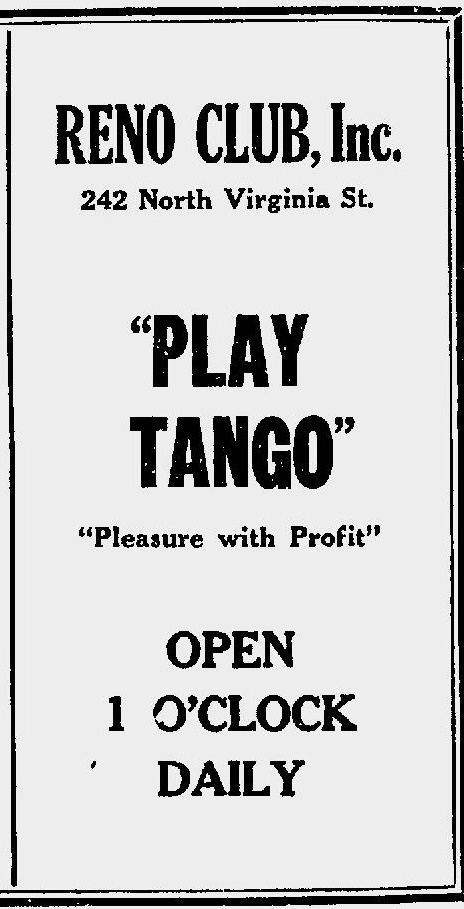
1941-1952
The 1941 breakout of war between the U.S. and Japan started a series of deleterious events for Nevada’s first tango parlor Reno Club, Inc. and its proprietors. These included a tangle with a newcomer to the region’s gambling industry, William “Bill” F. Harrah.
Longstanding Bingo Business
A group of Japanese-American men, all U.S. citizens, debuted a gaming club in June 1931 at 232 N. Virginia Street in The Biggest Little City. Along with tango (also called bingo), the place offered hazard, 21, craps and roulette. The owners were:
- Ben Furuta, president
- Fred Taketo Aoyama, vice president and assistant manager
- Fred Y. Yamagishi, secretary
- Y. Yamagishi (a younger relative of Fred Y.), manager
(Furuta lived in California, but the others were Northern Nevada residents.)
Immediately, Reno Club, Inc. was successful. It was the only tango salon in town until Bill Harrah came on the scene in 1937. His first Reno tango enterprise was on Center Street, outside of the city’s gambling core, and, thus, Harrah closed it after only a few months. His next, which he called Plaza Tango, was on Commercial Row. In March 1940, he added a second tango enterprise, next door to Reno Club, Inc., at 242 N. Virginia Street.
Beginning of the End
Once the U.S. declared war on Japan, on December 8, 1941, all people of Japanese descent living in the States were considered the enemy and treated as such. The owners of Reno Club, Inc. were no exception. For starters, the U.S. federal government impounded their money, leaving them with no capital with which to operate their gambling business.
Also, Furuta was interned in the Poston War Relocation Authority concentration camp in southwestern Arizona, close to the California border and near the town of Parker.
The elder Yamagishi was arrested but released on parole, according to a newspaper article.
Aoyama was drafted but not called to serve.
Given their tenuous financial position and alien status, Reno Club, Inc.’s proprietors asked Harrah if he wanted to acquire their enterprise. He offered to pay $20,000 ($337,000 today) for it. About a week later, when the owners told Harrah they agreed to the deal, he indicated the offer price no longer stood and now was $12,500 ($210,000 today), they reported. Consequently, they refused to sell to him.
May 1942
Instead, they renegotiated their lease agreement on their club’s building, with the owner, Frank Quinn of Young Investment Co.
The document outlined that Harrah could lease the premises for $350 (about $5,900 today) a month for a year, and if the war wasn’t over by that point, the lease would revert to month by month. It would remain in effect “until the general treaty of peace has been concluded between the Axis Nations on the one part and the United Nations on the other part” or until October 26, 1948, whichever came first (Nevada State Journal, July 16, 1947).
Right away, Harrah assumed the space and advertised another bingo club.
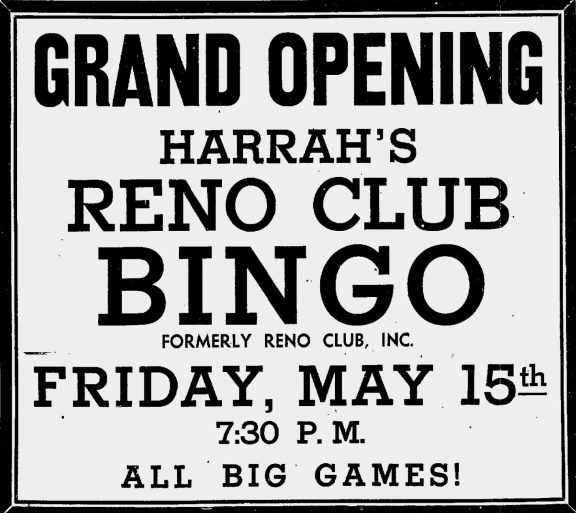
Dashed Hope
September 1945
When the war ended for the U.S. on September 1, 1945, the Reno Club, Inc. owners — now Fred and Y. Yamagishi and Fred Aoyama — sought to get back their gambling establishment. However, Harrah refused to vacate the premises, saying he didn’t have to until a peace treaty was signed between Japan and the States. (Typically, peace treaties aren’t signed until seven or more years after hostilities end, and until such a treaty is in place, those considered enemy aliens during the war technically retained that status.)
Instead of fighting for the return of their business, Aoyama and the Yamagishis sold it to the O’Keefes: James L., Charles P. and Lottie M. But they couldn’t operate it either because Harrah wouldn’t vacate it.
Another War, This One In Court
What followed was a five-year-long legal battle between the O’Keefes and Young Investment Co. and/or Harrah.
September 1946
To get Harrah out of their Reno Club, Inc., the O’Keefes sued the landlord Young Investment Co. The O’Keefes claimed Harrah had no right to occupy the premises now that the war was over. Young Investment, on the other hand, asserted that, according to the lease, Harrah was entitled to stay there until a peace treaty was effected or the lease ended in October 1948.
Later in September, Judge William McKnight of the district court ruled against the O’Keefes, and Harrah stayed put. The O’Keefes appealed.
July 1947
Next, the Nevada Supreme Court heard the case. The judges reversed the decision and returned the case to the lower court to be tried again.
September 1947
At the second trial in district court, Judge Frank McNamee of Las Vegas presided. Also, Harrah was a defendant alongside Young Investment.
February 1948
McNamee ruled differently than McKnight had and ordered Harrah to clear out of Reno Club, Inc.’s premises. But Harrah didn’t. Instead, he appealed to the state supreme court.
October 1948
Before the case was even presented to the supreme court judges, October 26 came around, thereby terminating the lease on 232 N. Virginia St. The gambler moved out of Reno Club, Inc. that day. The next month, the O’Keefes reopened Reno Club Inc. (and eliminated the comma from the name).
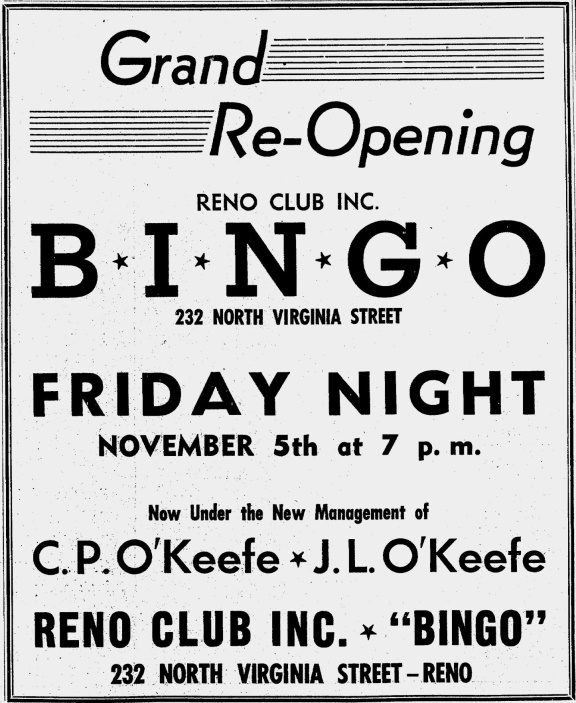
June 1949
The Nevada Supreme Court upheld McNamee’s 1948 ruling.
The Exclamation Point
May 1952
The O’Keefes again sued Harrah, this time seeking damages for the four months between June 15, 1946 and October 26, 1946, during which, according to the lawsuit, he’d illegally occupied Reno Club, Inc. This period was before the initial district court ruling in the O’Keefes versus Young Investment case. The O’Keefes asked for $133,632 (about $1.4 million today). The amount consisted of rent, at $100 ($1,000 today) a day, and $43,300 ($448,000 today) for use of the gambling business’ personal property.
Judge A.J. Maestretti determined the O’Keefes weren’t entitled to damages for any period before McNamee’s February 1948 ruling but were for the six months after that. Consequently, Maestretti awarded them $8,155 ($84,400 today) for rent, at $105 per day.
What do you think? Should Bill Harrah have vacated the Reno Club, Inc. premises when the war between the U.S. and Japan ended or not?
Sources

